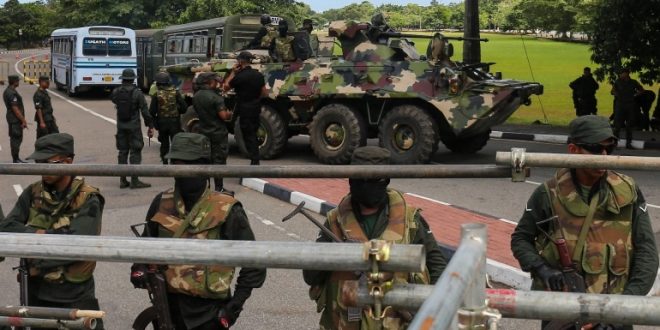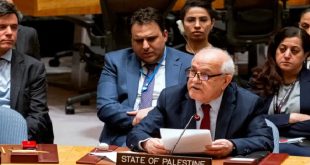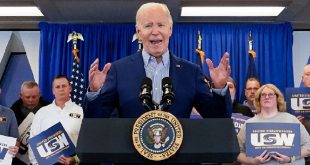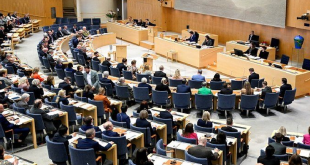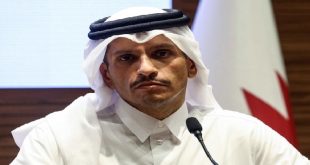16-07-2022
COLOMBO: The Sri Lankan parliament met on Saturday to begin choosing a new leader to serve the rest of the current term after the president fled abroad and resigned following mass protests over the country’s economic collapse.
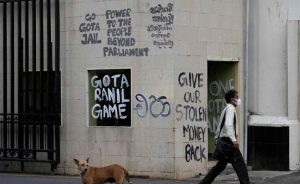 Parliament Speaker Mahinda Yapa Abeywardena promised a swift and transparent political process that should be completed within a week.
Parliament Speaker Mahinda Yapa Abeywardena promised a swift and transparent political process that should be completed within a week.
Prime Minister Ranil Wickremesinghe was sworn in on Friday as interim president until parliament elects a successor to Gotabaya Rajapaksa, whose term ends in 2024.
Protesters in the crisis-hit island nation, however, insist the six-time prime minister too should step aside. The new president could appoint a legislator to replace Wickremesinghe.
Nominations for the presidential post will be heard on Tuesday, the parliament’s secretary general Dhammika Dasanayake said during a brief session. If there is more than one candidate for the president, the legislators will vote on Wednesday.
Rajapaksa resignation letter
Rajapaksa, 73, fled to the Maldives and then to Singapore this week to escape a popular uprising against his government.
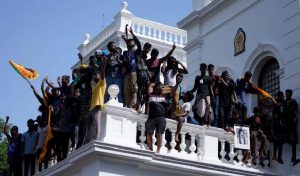 During the proceedings, Dasanayake also formally read out Rajapaksa’s resignation letter, the contents of which have not previously been made public.
During the proceedings, Dasanayake also formally read out Rajapaksa’s resignation letter, the contents of which have not previously been made public.
In his letter, Rajapaksa said Sri Lanka’s financial crisis was rooted in years of economic mismanagement that predated his presidency, along with the COVID-19 pandemic that drastically reduced Sri Lanka’s tourist arrivals and remittances from foreign workers.
“It is my personal belief that I took all possible steps to address this crisis, including inviting parliamentarians to form an all-party or unity government,” the letter said.
The family has denied the corruption allegations, but Rajapaksa acknowledged some of his policies contributed to Sri Lanka’s meltdown.
Heightened security
Security around the parliament building in the capital, Colombo, was increased on Saturday with armed masked soldiers on guard and roads near the building closed to the public.
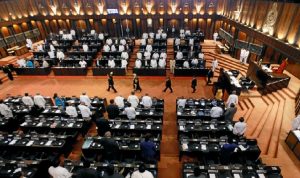 More than 100 police and security personnel with assault rifles were deployed on the approach road to parliament.
More than 100 police and security personnel with assault rifles were deployed on the approach road to parliament.
Minelle Fernandez, reporting from Colombo, said police officers were manning barricades and a water cannon to prevent any unrest, though protesters had yet to arrive.
“The protesters seem to be adopting a wait-and-see approach to marshal up their energies and resources, because they say they are in it for the long haul,” Fernandez said.
In a televised statement on Friday, Wickremesinghe said he would initiate steps to change the constitution to curb presidential powers and strengthen parliament, restore law and order, and take legal action against “insurgents”.
It was unclear to whom he was referring, although he said true protesters would not have gotten involved in clashes on Wednesday night when many soldiers reportedly were injured.
“There is a big difference between protesters and insurgents. We will take legal action against the insurgents,” he said.
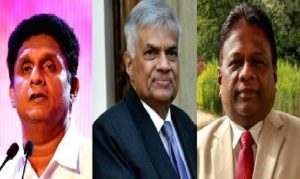 The Sri Lankan military warned on Thursday it had the powers to respond in case of chaos, in a message some found ominous.
The Sri Lankan military warned on Thursday it had the powers to respond in case of chaos, in a message some found ominous.
‘Elective dictatorship’
Meanwhile, opposition presidential nominee Sajith Premadasa promised to “listen to the people” and to hold Rajapaksa accountable if he wins.
In an interview with The Associated Press, Premadasa said he would ensure that “an elective dictatorship never, ever occurs” in Sri Lanka.
“That’s what we should do. That is our function – catching those who looted Sri Lanka. That should be done through proper constitutional, legal, democratic procedures,” he said.
Sri Lanka has run short of money to pay for imports of basic necessities such as food, fertiliser, medicine and fuel for its 22 million people, with days-long fuel queues becoming the norm.
Foreign exchange reserves have dwindled to close to zero and headline inflation hit 54.6 percent last month.
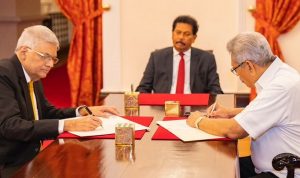 Street protests over the economic meltdown simmered for months before boiling over last week when tens of thousands of people occupied important government buildings, including the official residence of the president.
Street protests over the economic meltdown simmered for months before boiling over last week when tens of thousands of people occupied important government buildings, including the official residence of the president.
Energy minister Kanchana Wijesekera said the first of three fuel shipments was received on Saturday, the first shipment to reach the country in about three weeks.
A second diesel consignment will also arrive on Saturday, with a shipment of petrol due by Tuesday. “Payments completed for all 3,” the minister said in a tweet. (Int’l News Desk)
 Pressmediaofindia
Pressmediaofindia
